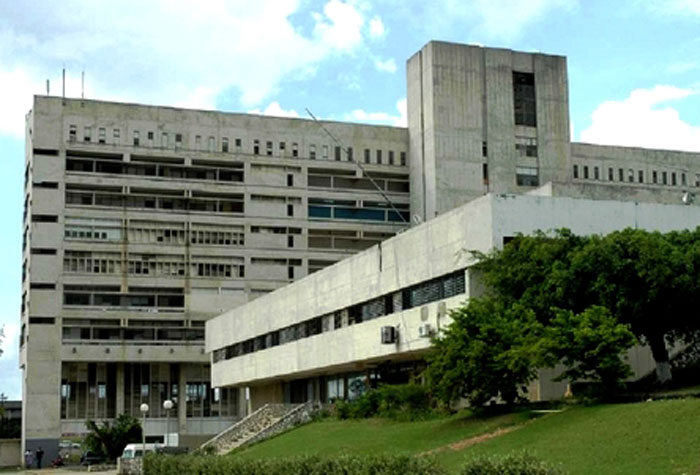Cornwall Regional Hospital Expands Capacity for Premature Babies
By: , October 26, 2015The Key Point:
The Facts
- It was decided that steps would be taken to further expand the nursery to accommodate additional neonates, or babies born prematurely.
- We have been expanding the nursery incrementally over time, in response to the demand for more accommodation for neonates.
The Full Story
The Cornwall Regional Hospital is again expanding its capacity to accommodate additional premature babies in light of the death of a number of at-risk newborns at the institution.
Following a meeting of the Board of Management on Thursday afternoon, where a report was tendered on the matter, it was decided that steps would be taken to further expand the nursery to accommodate additional neonates, or babies born prematurely.
We have been expanding the nursery incrementally over time, in response to the demand for more accommodation for neonates.
In addition, the institution will be hiring more registered nurses as well as Patient Care Assistants in an effort to increase the hospital’s nurse to patient ratio.
The hospital will also look at acquiring additional critical equipment for the nursery as we continue to await developments in the Programme for the Reduction of Maternal and Child Mortality (PROMAC) project, which is geared towards the provision of high dependency neonatal units at the CRH.
The current issue surrounds the death of six premature babies at the hospital, which was attributed to the Klebsiella bacteria, which was detected in the neonatal nursery on Saturday, October 7, 2015.
Immediate measures were put in place by the medical staff to identify and curtail the outbreak and within five (5) days it was contained. This included curtailing any new admissions and the relocation of unaffected neonates.
The relevant officers at the Ministry of Health were advised within one day of the developments and assisted the CRH Infection Control Team to curtail what was identified as a Klebsiella bacteria outbreak.
The quick response of the health team resulted in the survival of eight of the fourteen babies affected by the bacteria.
In addition, the professionalism and thoroughness of the Cornwall Regional Infection Control Team ensured that there has been no new infection at Cornwall Regional since October 14.
The Ministry of Health’s Epidemiology team, assisted by the Pan American Health Organization (PAHO), continues to provide technical support and monitoring to the management of the CRH and the Western Regional Health Authority.
Having studied the situation, the management of the hospital has determined that whenever admission to the neonatal nursery exceeds its normal maximum of 22 babies, there is a risk of a recurrence of the problem.
However, instead of placing a cap on the number of admissions, given the regional nature of the institution, the Board has decided to expand the capacity rather than imposing an admission limit.
So far this year, there have been 2,391 deliveries.
The management observed that this time of the year, it is traditional for there to be a sharp increase in the number of admission of expectant mothers which may give rise to more than normal occupancy levels in the maternity ward.
Added to that, is the fact that the hospital, which has a capacity of only 400 beds, is overburdened. Between January and August, this year, Cornwall Regional had 11,559 admissions.
The Board reaffirms that Cornwall Regional Hospital and the Western Regional Health Authority are committed to offering the best quality health care to the public as outlined in our mission statement.

